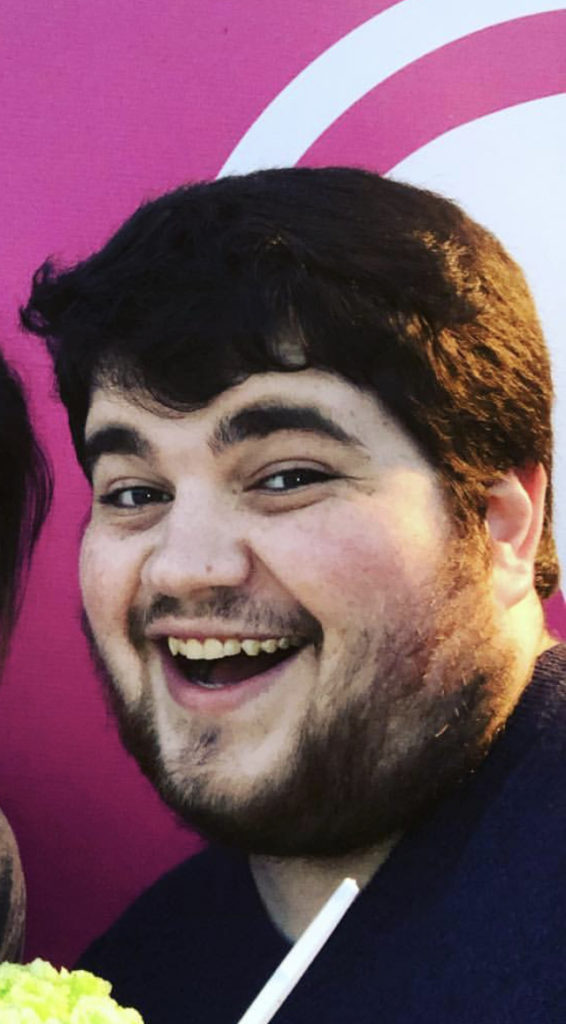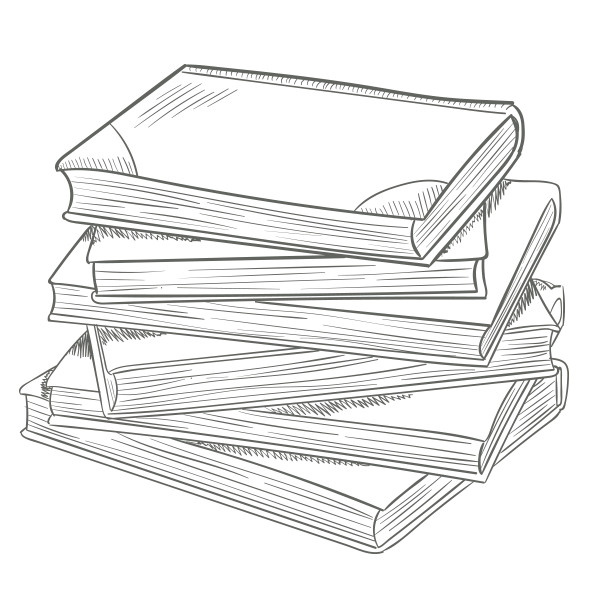
Happy Sunday!! Let’s say hello to fantasy author Dylan Hague, lover of dragons, elves, and all manner of fantastical things! He loves what he does and wants to make others love the worlds he creates, as well as, know what others think about his books. If you would like to learn more about Dylan Hague, then follow him at Twitter, Instagram (@haguethewriter), and Amazon!
Check out his book, Blade of the Covenant at Amazon!

Are you an indie author or a traditionally published author?
I was lucky enough to be published traditionally through Hydra Publications. Before that, though, I was planning on self-publishing through Kindle Direct. I believe that every author owes it to themselves and their work to shoot for traditional publishing, finding an agent, the whole nine. But that doesn’t make the self-published story any less valuable. Some of my favorite stories are independently published, and doing it that way can be better for the story itself in a lot of ways. There’s a certain level of creative freedom that comes with indie publishing that you might not get with a house. I’m sure we’ve all heard the stories, like how J.D. Salinger faces so much pressure for Catcher in the Rye being too dark. But there is something about knowing you got in with a house that’s just incredibly satisfying.
Tell me a little about your writing journey, thus far.
I first started writing when I was just a kid. The elementary school I went to would do this thing where they let us write a story, do illustrations for it and everything, and they would print it out into a little storybook for us to take home. Even back then, I was all about knights and dragons! I’ve always done it for myself, but it wasn’t until recently that I decided to put my work out there publicly. I started just posting fanfiction online. It helped me sharpen up my skills as a writer, and when it got a fair bit of attention, I decided to finally write out this original story I had been putting together for a few years. That story eventually became Blade of the Covenant, my first novel!
Do you write under a pseudonym? If so explain why.
I do use a pseudonym, yeah. Dylan Hague just has a better sound to it than my actual name,
What genre do you write and why?
I mostly stick to that sort of high-fantasy fairytale kind of thing. Like Terry Pratchett or Tolkien, y’know what I mean? I’ve just always had this fascination with fantasy -dragons and orcs and elves (oh my!). The idea of just a wave of the hand and a few fancy words in some mystical language and the impossible happens. The lone warrior against a host of dangerous foes, nothing but the sword in his hand standing between his people and the enemy. That’s the sort of thing dreams are built on, y’know? Even more than sci-fi. At least there it’s like, “Hey, with the power of science and knowledge, look what crazy things could happen!” and don’t get me wrong, I adore sci-fi. But there’s just something about fantasy. Something about that magic. It’s like “there is no real explanation for this amazing thing. With all the world’s knowledge, this could never happen and never be explained. But you can see it happen right here.”
What are you currently working on?
Right now, I’m doing my best to finish the next book in my Seventh Whisper series. For the time being, I’m calling it Shadows of the Sky, but that may or may not change by the time it sees print. I think it’s a great follow-up to Blade, and I think it does a good job of setting the tone for the story going forward. Other than that, I have a few short stories that take place in the same world as the books that I’ve got kind of sitting around. I’d love to work them into an anthology or something like that, but for now, I just have them to myself. Maybe I’ll just put them out there online, then find something to do with them later. We’ll see!
What inspired you to write your books?
I think it started with the things I took in as a kid. It started with the movies: The Sword in the Stone, Hercules, Tarzan, Star Wars. What crazy rides! As an impressionable little dude, I would dream up my adventures in the backyard of the little double-wide I grew up in, using those movies as a base for my own stories. Then as I got older, I turned to books. Tolkien, Robert E. Howard, R.A. Salvatore, Christie Golden. Their stories grabbed hold of my mind and practically shouted the inspiration into me. You always want to measure up to the greats, but the best we can do is try to emulate their shine with a little bit of ourselves, and see with what we throw out there makes a spark like they did… hope that all makes sense, but it probably doesn’t.
What are your top 5 favorite books?
Hoo boy, there’s a tough question! Let me think… number one has always been The Hobbit, just because I love how it sort of turns the big adventure on its end by focusing on the least adventurous person there, putting all the tremendous conflict in the background while poor little Bilbo bumbles his way across Middle Earth. Second, we’ll just group the Lord of the Rings, together. It works so well as a singular narrative, and so much of the best bits come in the appendices that appear separate from each book… and also because I can’t choose a favorite from among them. Third, I’ll say The Last Wish by Andrzej Sapkowski. While I do have complaints about the way Sapkowski writes some things—particularly the way he handles women in his stories—there’s something about the way the stories of Geralt are written, how the harrowing battles and tense debates about morality in a world of monsters that just make each story so gripping and impossible to put down. Number four I think has to be Dracula by Bram Stoker. Something about the way the Count was portrayed in the original text, that delicious brand of evil, especially in the first entries of Jonathan Harker’s journal, I just can’t put it down whenever I pick it up to read again. (I will say, though, that it’s better to grab an abridged version of the book because there are a lot of details that Stoker added in, that just sort of get in the way of the story. I recommend the audiobook version as read by Sir Christopher Lee.) And number five, I have to give it to Arthas: Rise of the Lich King by Christie Golden. I never played the game, this book was based on as a kid, but after reading the tragedy of Arthas Menethil, I couldn’t help but dive into the Warcraft universe. It just breaks your heart watching this wonderful hero crumble and twist into such a tremendous villain, and there are so many nods to Warcraft’s other tales that serve as hooks to get you reading.
What does literary success look like to you?
Literary success… if you had asked me this before I got published, I feel like my answer might have been a little different. Not too much, but a little. I think, at the end of the day, I can say that I’m happy just knowing people are out there enjoying what I read. Of course, the dream is that you get enough people buying your books that you can just live off of your writing, but we can’t all be that lucky. Even Steven King worked a factory job when he started. But to be honest? If we’re talking about what makes me feel successful… more so than just knowing people have read it, I like to hear how people feel about it. Feedback, y’know? Just knowing that people have thoughts and feelings about the world and the story that I created, that they want to share. That makes the whole thing worth it.
How many hours a day do you write? What is your writing routine?
I know a lot of people try to keep track of that sort of thing, but I’ve never been good at it. I like to keep track of my words, though. On a writing day, I like to shoot for at least a thousand words, maybe two thousand if I have the time. But my writing is usually broken up over the whole day because I just have a lot going on. If I’m lucky, I can get two or three hours at the end of the day to just plop down in my little blue rocking chair, pull out my fancy keyboard, and go to town. But again, that’s if I’m lucky. I do believe in the writing routine, and I hope to get my own figured out soon, but if you’re not in a position where you’re able to make it a focal point, then you can’t let that break your resolve. Write when you can try to dedicate time each day to it, but don’t sacrifice your world for your word count.
If you could have been the original author of any book, what would it be and why?
I’ve given this an exhausting amount of thought. But if I could be the original author of any novel, I would want to be William Goldman, the man who wrote The Princess Bride. There is SO much more story there that I’m dying to dig into! Wesley’s time aboard the Revenge! The story of Fezzik, Inigo, and Vizzini first coming together! What a shame we never got more. But more than that, the story has a sort of whimsy and comedy that I can’t help but envy. I try not to be too gloomy in my writing since I’ve never personally been too big a fan of the grim-dark, everything-sucks brand of fantasy literature. Sad stories, those are wonderful, but bummer stories? Who has the time? I also like to try and crack a few jokes here and there in my works, as I’m a firm believer that humor and fantasy are a delectable mixture of flavors, even it’s just a touch of sarcasm or wit here and there. But no matter how hard I try, how could anyone hope to capture that same fairytale spirit of the Princess Bride? Y’know? Whether you prefer the movie or the book, there’s something about it that just makes you feel like a kid again every time you go back to it.
What advice would you like to give to aspiring authors?
My advice is simple: give yourself permission to write nonsense. Your first impulse might be “I have to do this right in one go. This has to be the best possible version of my story.” I understand that mentality. But if you keep shooting for perfection, you’ll never get done. Trying to perfect your draft while you write it is a surefire to drive yourself headlong into writer’s block. You have to allow yourself to be sloppy, to make plot holes, to screw up. Like Neil Gaiman once said, “the process of creating your second draft is the process of making it look like you knew what you were doing all along.” The most important part for you right now, starting your journey as a writer, is to write. If you just allow yourself to make that mess, then go back and shape that clay into your art once it’s there, then I promise you that your story will turn out beautiful.
Leave a Reply